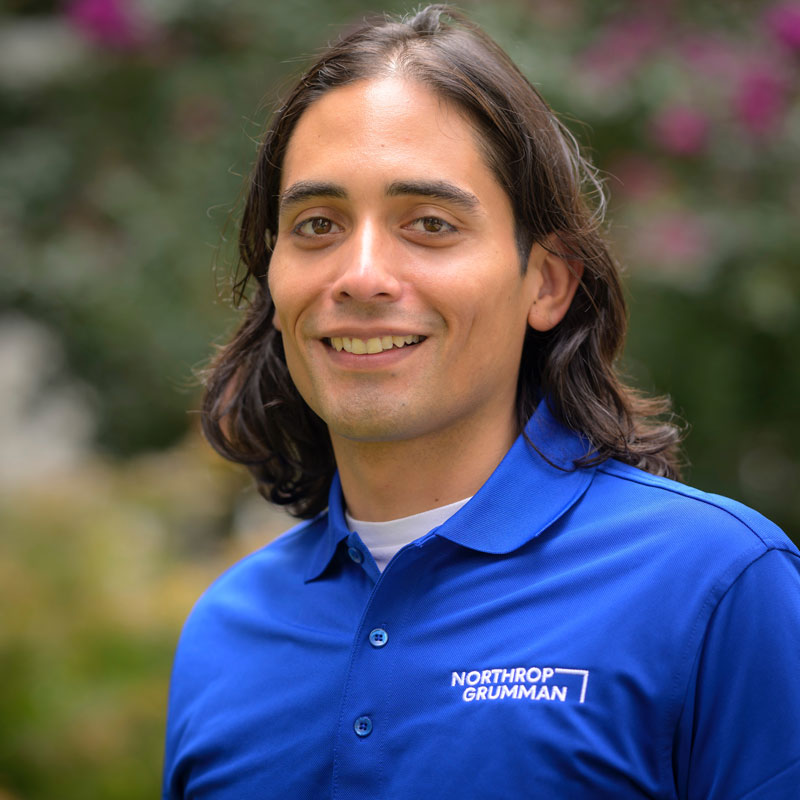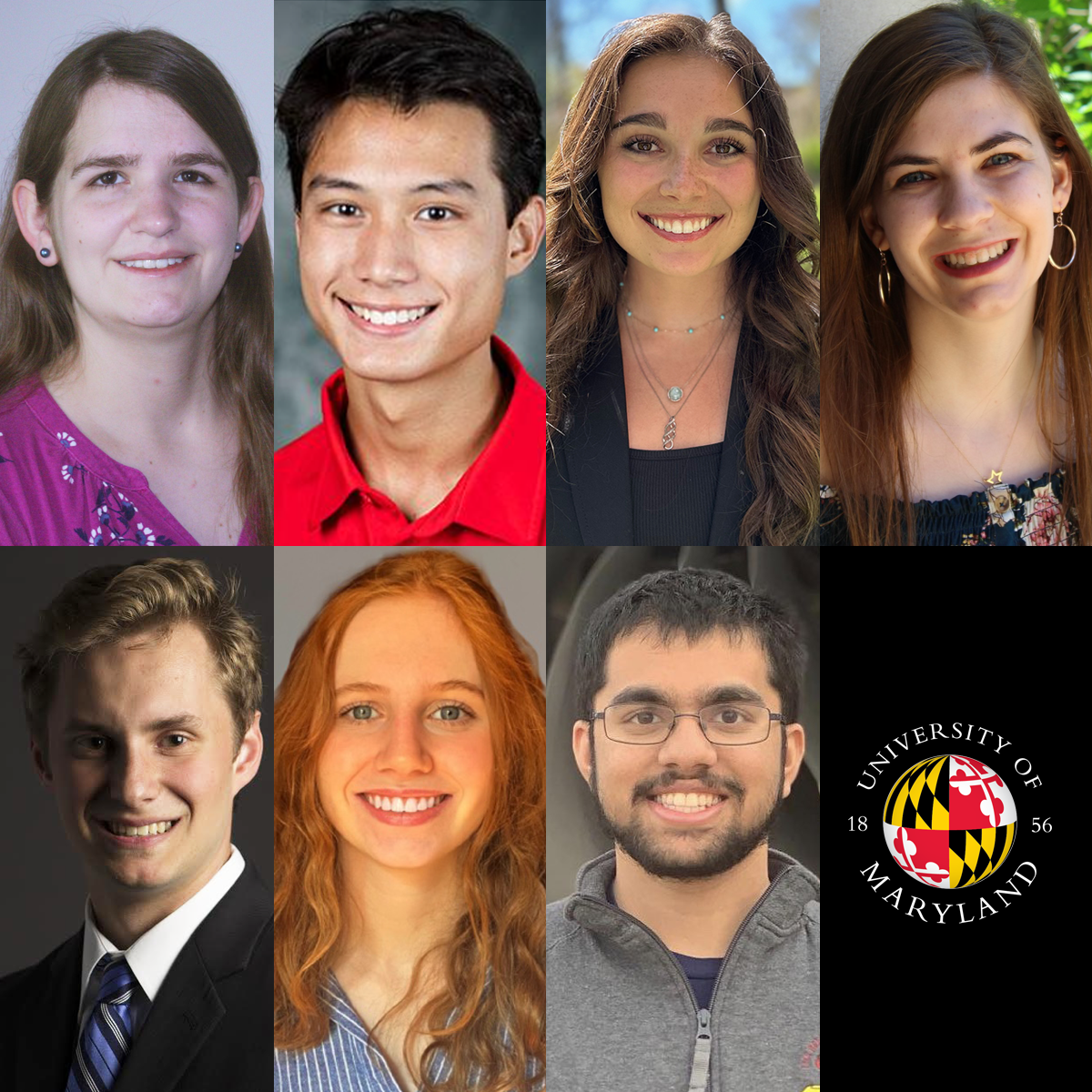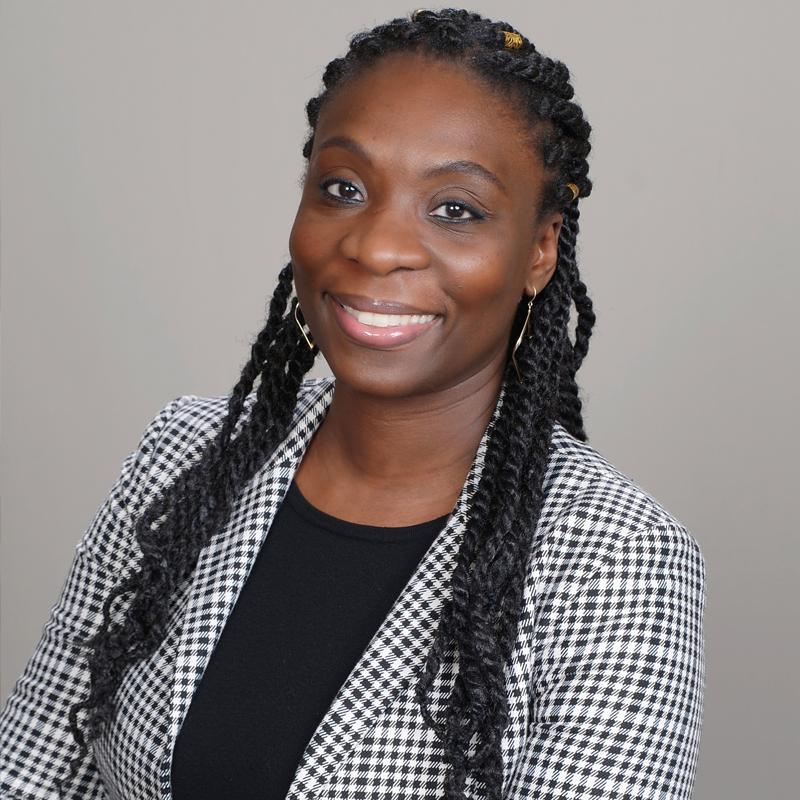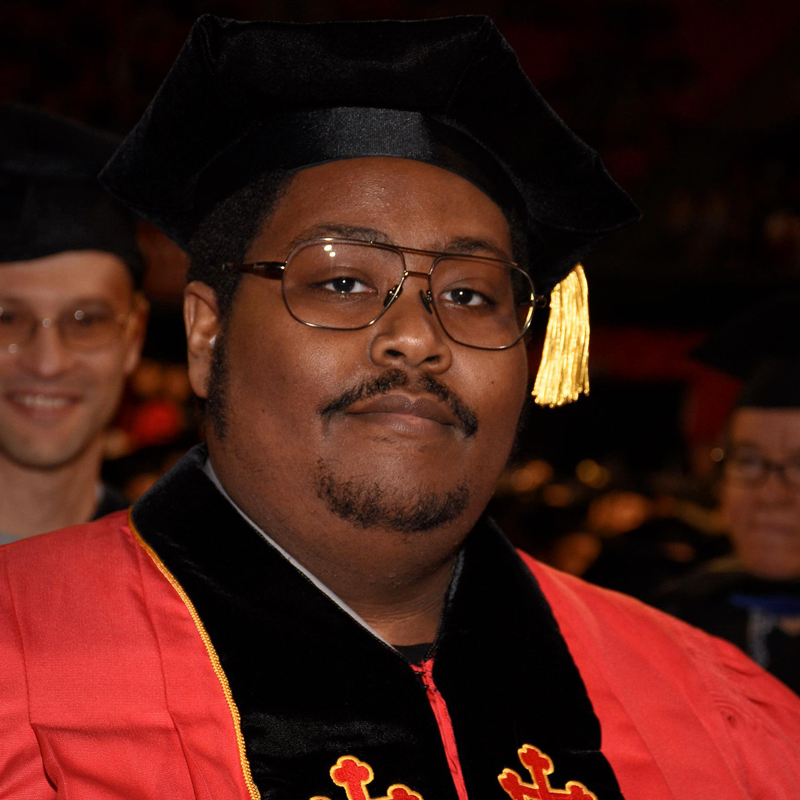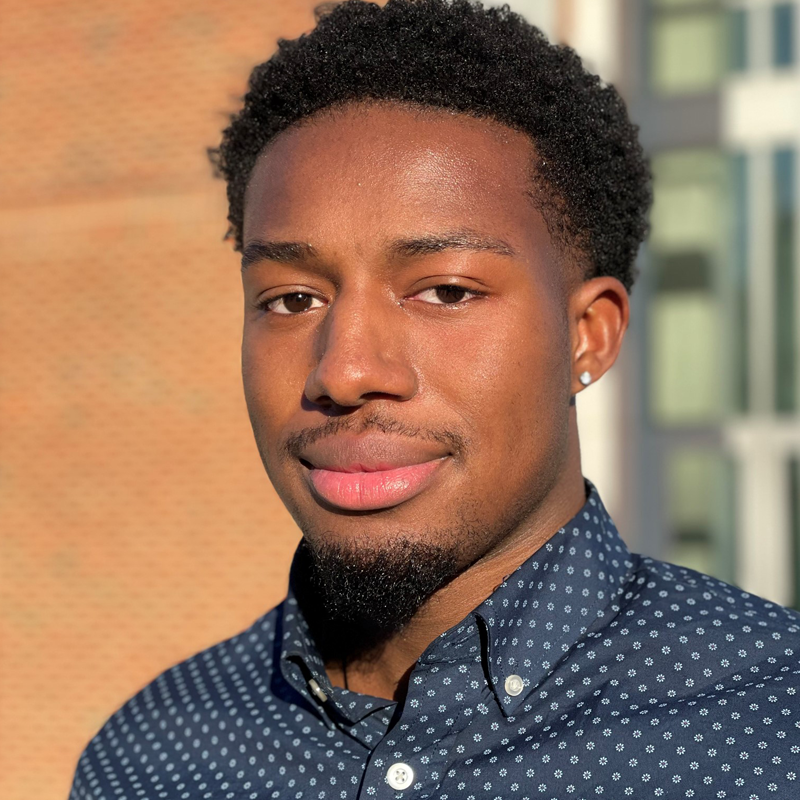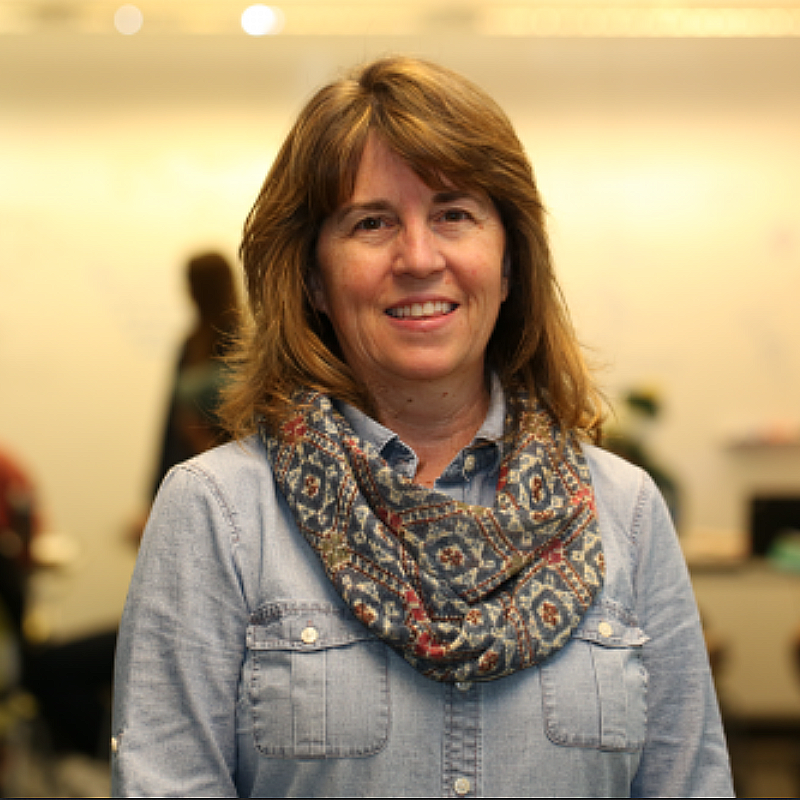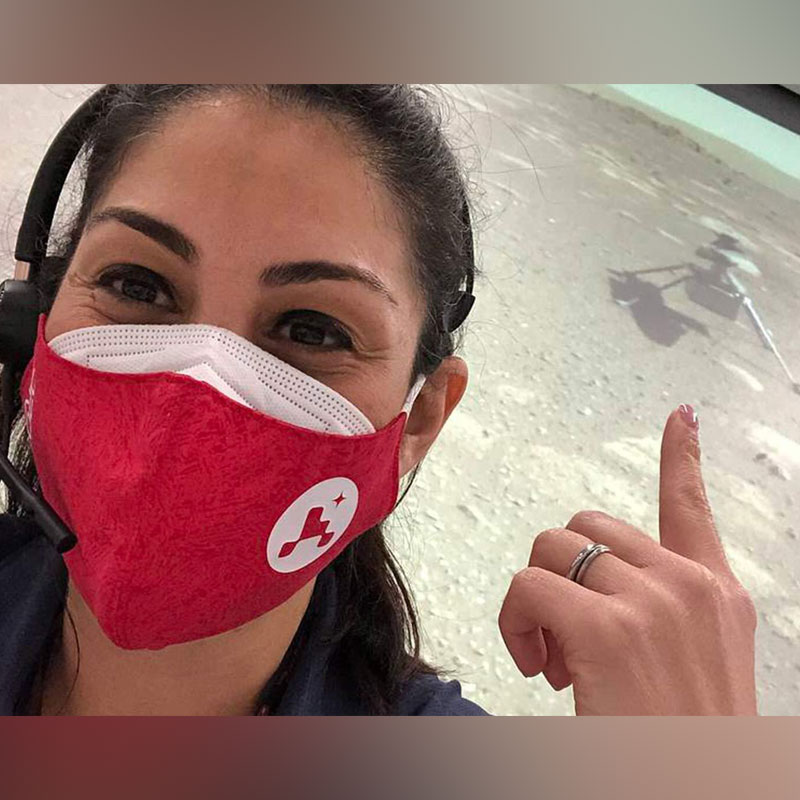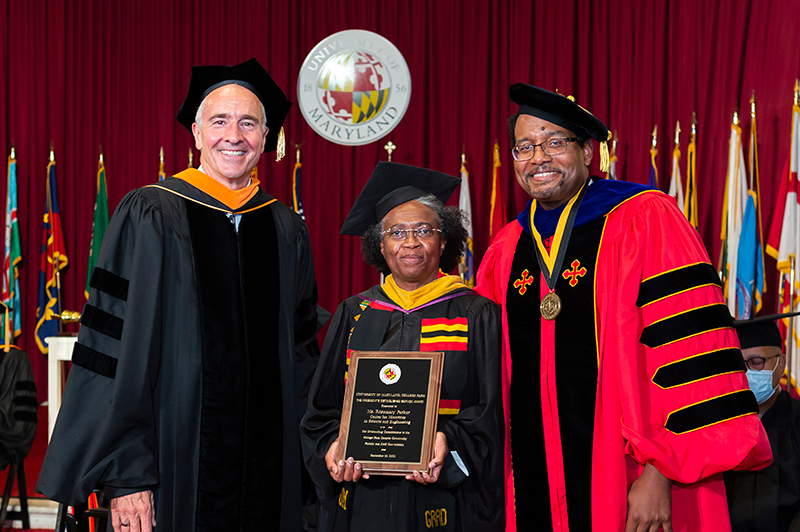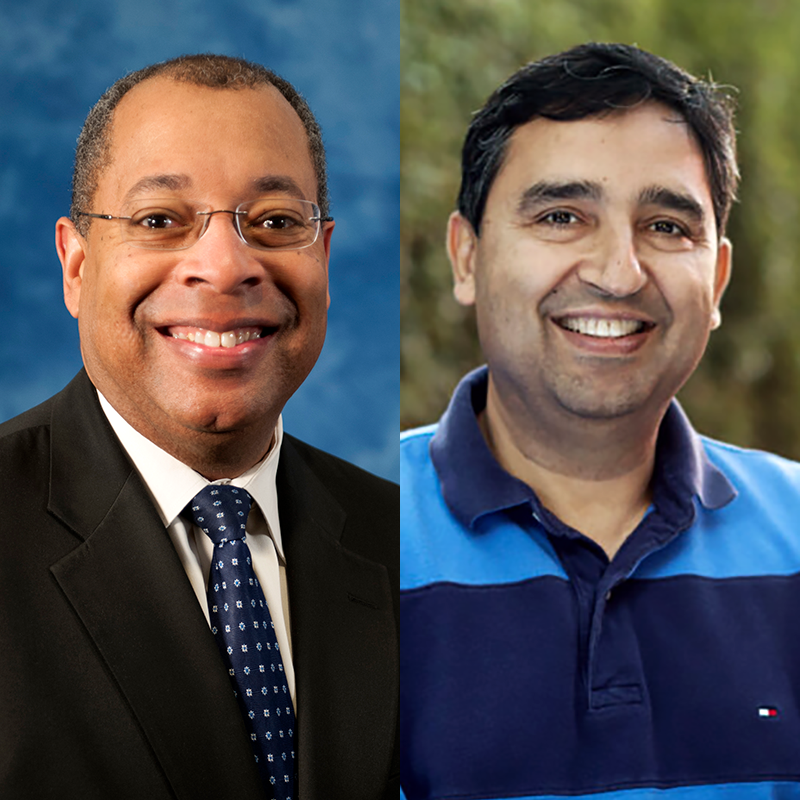News Story
Fearless Ideas: Open Access
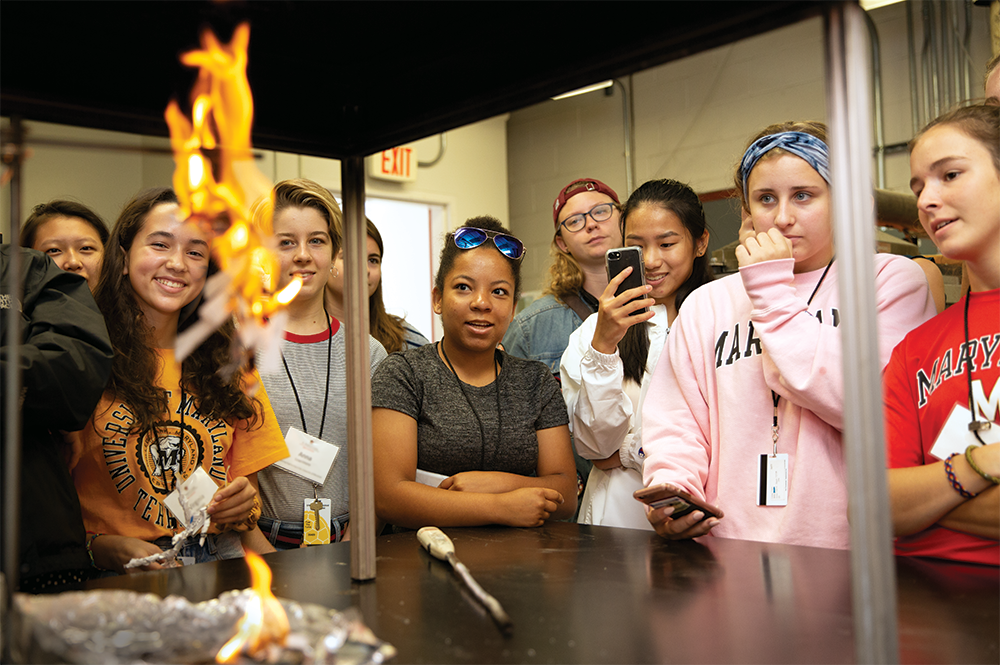
High school students in a WIE summer program get up close to a fire whirl. Photo: Matthew Ehrichs
Mary Bowden, acting director of the Women in Engineering (WIE) Program and visiting professor of aerospace engineering at the A. James Clark School of Engineering, remembers a time when being a female engineer was “tremendously unique.”
The Clark School is working to change that by fostering a community inclusive of individuals from all backgrounds—even before they enroll.
“At the Clark School I could be myself,” remembers mechanical engineering major Hannah Lobell. As a high school student, Lobell attended a week-long residential summer program and the day-long DREAM Conference for girls sponsored by WIE. Today, she is a junior who volunteers for WIE’s K–12 outreach events. “It’s important to get girls interested in engineering,” Lobell says, “to give them confidence and let them know that there are programs for them.”
K–12 outreach efforts help the Clark School to both recruit prospective engineering students and cultivate a diverse student population. Says Darryll Pines, dean and Farvardin Professor of Engineering at the Clark School, “It is essential that we are exposed to different perspectives and interact with people from different backgrounds in order to succeed in a global community.” A leading program for graduating underrepresented students, “the Clark School has a responsibility to increase access to the transformative experience of higher education,” he says. Partnerships with K–12 schools, program sponsors, and individual donors are necessary to ensure a diverse, inclusive, and equitable student population.
Like WIE, the Clark School’s Center for Minorities in Science and Engineering (CMSE) provides academic support services and outreach to recruit, retain, and graduate underrepresented individuals: in this case, African-American, Hispanic-American, and Native-American engineering students. Despite targeting specific populations, inclusivity is stressed. Says CMSE Program Coordinator of Outreach, Recruitment, and Special Programs Marissa Massey, “We try to instill in all our young students that this is a place where they can thrive.”
When computer engineering major José Prado was a rising high school senior, he attended the four-week summer residential ESTEEM/SER-Quest program sponsored by CMSE. Prado was a student at the Puerto Rico Institute of Robotics, a high school that has partnered with CMSE since 2010. At the Clark School, Prado began developing computer programming skills through research and hands-on projects. His team’s design challenge: build a robot that would detect light and nearby objects. The robot worked, and so did the program. “The experience opened me up to computer engineering and to the Clark School,” says the Clark School senior and active CMSE volunteer.
“The Clark School has a responsibility to increase access to the transformative experience of higher education.”
This past summer, ESTEEM/SER-Quest was offered free of cost to accepted students thanks to industry sponsorship. WIE’s annual DREAM Conference, which brings about 500 high schoolaged girls to campus to explore the innovations and applications of engineering and to learn about the Clark School, is also free to attendees. “Financial constraints shouldn’t inhibit student participation,” says Bowden, who encourages corporations, as well as Clark School alumni, friends, and parents, to help make such formative K–12 outreach programs more accessible to tomorrow’s engineers.
It’s about “creating a better engineering community for all,” she says.
What's your Fearless Idea?
Visit fearlessideas.umd.edu to learn more about Fearless Ideas: The Campaign for Maryland.
Give: go.umd.edu/give-to-engr
Contact: Leslie Borak, Assistant Dean for External Relations
email: lborak@umd.edu
phone: 301-405-0317
Published January 2, 2019
